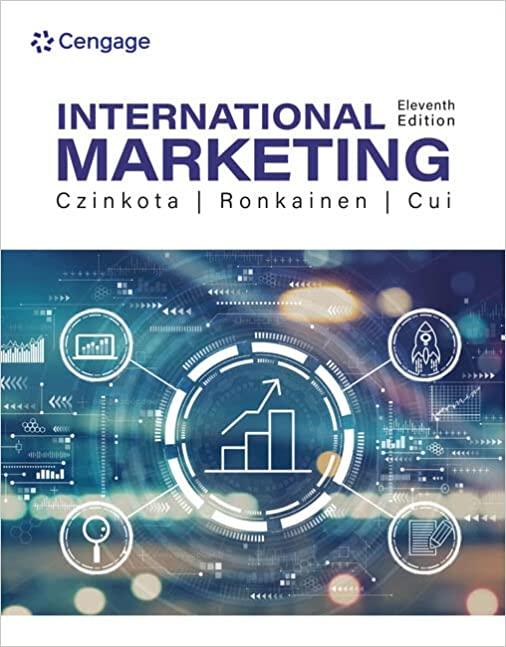Consumers in Europe, North America, and other advanced economies are well off. For decades, such consumers have
Question:
Consumers in Europe, North America, and other advanced economies are well off. For decades, such consumers have enjoyed superior living standards and the ability to fulfill all their essential material wants. In population terms, however, the advanced economies represent only about one-sixth of humankind. Fortunately, citizens of emerging markets-for example, Brazil, China, and India-are now experiencing rapid gains in life quality. Economic growth rates have reached a critical momentum in such countries, and, for the first time in history, billions of humanity's poor are beginning to achieve decent living standards. In China and India, real percapita incomes are now rising much faster than occurred at any time in history. In the coming two decades, up to three billion people will join the global middle class.
Simultaneously, however, the growing global middle class implies the world is entering an era of heightened demand for raw materials, commodities, and other resources. Adding billions of consumers to the global marketplace implies the world can expect shortages and higher prices for energy, food, steel, and other precious goods. In addition, rising consumerism poses important challenges for the natural environment. As emerging-market consumers discard products and packaging, waste will pile up in landfills. Increased economic activity will generate pollutants that affect human health and may permanently damage the Earth.
The harmful side effects likely to arise as billions of people emerge from poverty poses one of humanity's greatest dilemmas. On the one hand, eradicating global poverty is a critical goal. On the other hand, the trend poses potentially grave implications for global resources and the natural environment.
Questions
1. What can be done to address this dilemma? What are the appropriate roles of governments, corporations, and consumers?
2. Some believe economic development in emerging markets should be delayed in order to reduce resultant harmful effects. What are the moral implications of such a belief? Should consumers in the advanced economies buy fewer products and services in order help reduce the coming threat? Would you be willing to reduce your consumption to help people in poor countries?
3. In the past, technological improvements helped alleviate such challenges. Does technology have a role today, and, if so, what might it be?
4. Do you perceive any opportunities arising from the dilemma?
Step by Step Answer:

International Marketing
ISBN: 9780357445129
11th Edition
Authors: Michael R. Czinkota, Ilkka A. Ronkainen, Annie Cui





